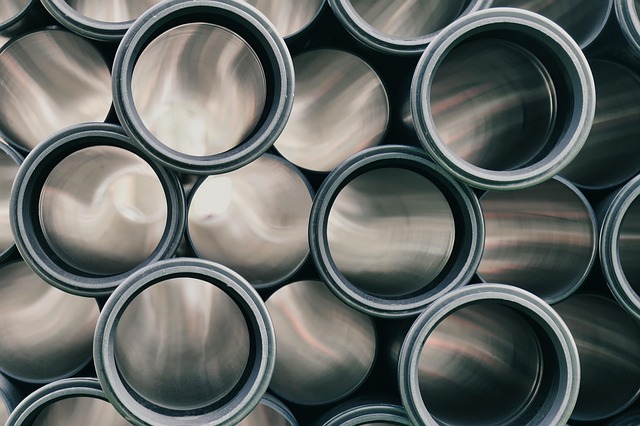Career Opportunities with Welding Companies in the UK
The welding industry in the UK continues to offer diverse career paths across manufacturing, construction, aerospace, and energy sectors. With ongoing infrastructure projects and the push for renewable energy installations, skilled welders find themselves in a position where their expertise remains highly valued. Understanding the landscape of welding careers helps professionals make informed decisions about their career development and potential earnings in this skilled trade.

Skills Employers Look For in Professional Welders
Welding companies across the UK prioritise specific technical and soft skills when recruiting. Technical proficiency in various welding processes remains fundamental, including MIG, TIG, stick welding, and specialised techniques like underwater or pipeline welding. Employers value candidates who hold relevant certifications from recognised bodies such as the Welding Institute (TWI) or City & Guilds qualifications.
Beyond technical abilities, companies seek welders with strong attention to detail and safety awareness. The ability to read and interpret technical drawings, blueprints, and welding symbols proves essential in most roles. Physical fitness and manual dexterity enable welders to work in challenging environments, while problem-solving skills help them adapt to unexpected situations during projects. Many employers also appreciate candidates with basic fabrication skills and experience using cutting equipment and measuring tools.
What Welders Do Every Day in Their Roles
Daily responsibilities for welders vary significantly depending on their specific role and industry sector. Fabrication welders typically spend their days in workshops, joining metal components according to specifications and drawings. They prepare materials by cleaning and cutting them to size, set up welding equipment, and perform quality checks on completed joints.
Site welders often work on construction projects, installing structural steelwork or pipeline systems. Their days involve travelling to different locations, working at height or in confined spaces, and collaborating with other trades. Maintenance welders focus on repairing existing structures and equipment, requiring diagnostic skills to identify problems and determine appropriate repair methods. Specialist welders, such as those in aerospace or nuclear industries, work with exotic materials under strict quality control procedures, often requiring additional certifications and security clearances.
Why Welding Jobs Are in Demand Across the UK
Several factors contribute to the sustained demand for skilled welders throughout the UK. The government’s commitment to infrastructure development, including major projects like HS2 and various renewable energy installations, creates ongoing opportunities for experienced welders. The construction industry’s recovery and growth following economic uncertainties has increased demand for structural welders and fabricators.
An ageing workforce in the welding industry has created skills gaps as experienced welders retire faster than new apprentices enter the field. This demographic shift particularly affects specialised welding sectors where years of experience are crucial. Additionally, the push towards net-zero carbon emissions has increased demand for welders skilled in renewable energy installations, including offshore wind farms and solar panel mounting systems.
The manufacturing sector’s resilience and adaptation to new technologies also sustains welding job demand. Industries such as automotive, shipbuilding, and aerospace continue to require skilled welders, while emerging sectors like electric vehicle production create new opportunities for specialised welding skills.
Welding salaries in the UK vary considerably based on experience, location, and specialisation. Entry-level welders typically earn between £18,000 and £25,000 annually, while experienced professionals can command £30,000 to £45,000. Specialist welders in sectors like offshore oil and gas or nuclear industries often earn significantly more, with some positions offering £50,000 to £70,000 or higher.
| Experience Level | Salary Range | Typical Industries | Additional Benefits |
|---|---|---|---|
| Apprentice/Entry | £18,000 - £25,000 | General fabrication, construction | Training, progression opportunities |
| Experienced | £30,000 - £45,000 | Manufacturing, structural steel | Overtime rates, company benefits |
| Specialist/Senior | £50,000 - £70,000+ | Aerospace, offshore, nuclear | High overtime, travel allowances |
Prices, rates, or cost estimates mentioned in this article are based on the latest available information but may change over time. Independent research is advised before making financial decisions.
Regional Variations and Opportunities
Welding opportunities vary across UK regions, with certain areas offering higher concentrations of specific industries. Scotland’s offshore energy sector provides numerous opportunities for pipeline and structural welders, particularly around Aberdeen and the Central Belt. Northern England benefits from ongoing manufacturing and shipbuilding activities, while the South East offers diverse opportunities across aerospace, construction, and general fabrication.
Wales continues to have strong steel and manufacturing industries, creating steady demand for skilled welders. Regional salary variations often reflect local industry concentrations and living costs, with London and South East positions typically offering higher base salaries but also higher living expenses.
The welding industry in the UK presents genuine career opportunities for those willing to develop their skills and adapt to changing industry requirements. Success in welding careers often depends on continuous learning, maintaining current certifications, and developing specialised skills that match market demands. As infrastructure projects continue and new technologies emerge, skilled welders who invest in their professional development can expect to find rewarding career paths with competitive compensation packages.




